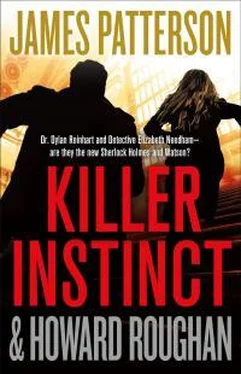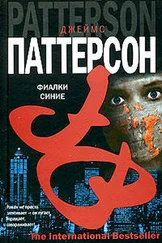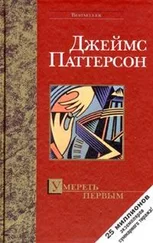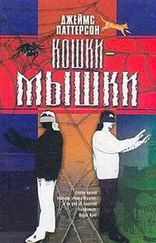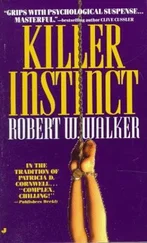“Are you okay?” asked Elizabeth.
I was staring out the living room window early the next morning. I’d just changed Annabelle’s diaper, and Tracy was now dressing her.
The sun had come up and life—no matter how cruel at times—would indeed go on.
“I’m okay,” I said. “More importantly, how are you?”
“I still feel like s-h-i-t, but I’ll be fine,” she said. She couldn’t shower because of all her bandages, but she was dressed and ready to go. “Thanks again for the change of clothes.”
She had on one of my old gray hoodies and a pair of “mom” jeans left behind by Tracy’s sister when she last visited from Providence. While it ranked among the top ten of unflattering ensembles, leave it to Elizabeth to somehow look good in it.
“Are you heading straight to work?” I asked.
She nodded. “I’ll let you know what I find out.”
I knew how anxious she was to get to her office and see what she could learn about that mysterious white glow obscuring the face of the woman in the hotel with the nuclear physicist. Elizabeth assumed either there was a technical glitch with the footage or someone had tampered with it. She had asked me what I thought, and I had told her I didn’t know.
I hated lying to her.
The glow was neither a glitch nor the result of tampering. Something else had caused it, but I couldn’t tell her what it was. Not yet.
Or maybe not ever.
What’s done is done, wrote Shakespeare in Macbeth . Were that only true for me.
My past won’t leave me alone.
In fact, it was about to come after me in more ways than I could’ve ever imagined.
Chapter 12
“YOU’RE GOING to be late,” I told Tracy after Elizabeth left.
“So I’m a little late,” he said, continuing to shower kisses on Annabelle, who was playing with her Baby Stella doll in his lap on the living room couch. “I’m jealous. You get to be with our beautiful girl all day. And I have to…” His voice trailed off into a sigh.
Sometimes the only thing worse than not booking an acting gig for a while is booking one that you dread. In Tracy’s case, it was a 3-D motion capture shoot. He was half doing a favor for a friend, Doug Chadwick, a programming engineer with a gaming company based in Hell’s Kitchen. It wasn’t a full favor for one simple reason. The gig paid pretty well. At least as well as one can imagine for jumping around all day wearing a green leotard covered with ping-pong balls.
Doug had already called to apologize. He wanted to cancel the session in light of the attacks, but the studio was already paid for. He couldn’t postpone or get a refund.
Tracy finally handed Annabelle to me and headed for the door. “Okay,” he said with a wave, “I’m off to win an Oscar.”
Two minutes later, he was back. Or so I assumed when I heard the knock on the door. Tracy had a habit of forgetting his keys.
I lifted Annabelle and carried her to the door with me. The previous owners of our apartment had been a little fanatical about security. In addition to motion-activated sensors in every room, they had installed a self-locking front door. It wasn’t the worst feature to have in a big Manhattan apartment building, so we didn’t change it.
“Let me guess,” I said as I opened the door.
Guess again, Dylan…
The man standing in front of me seemed as startled as I was. “I’m sorry—”
“No, I’m sorry,” I said. “I thought you were someone else.”
“Are you Dylan Reinhart?” he asked.
The average adult brain has anywhere from 100 to 500 trillion synapses. All of mine, no matter what the count, were firing at once. Something wasn’t right.
A well-dressed Arab with a British accent had just shown up out of the blue on my doorstep. I didn’t know him from Adam, but I was fairly certain his question was a formality. He knew damn well that I was Dylan Reinhart.
No point in my being coy. “That’s me,” I said. “I’m Dylan. And this here is Annabelle.”
“She’s beautiful,” he said. His somewhat stoic demeanor softened. “Hello, Annabelle.”
Annabelle buried her face in my shoulder. “As you can see she’s not terribly good with strangers,” I said. I didn’t actually punch the word strangers, nor did I have to. The word itself did the trick.
“Oh, yes, of course. My apologies,” he said, reaching inside his suit jacket, which was clearly custom-tailored. He handed me his card. “I’m Benjamin Al-Kazaz.”
Different cultures have different etiquette when it comes to giving someone a business card. The Chinese always use two hands. In India, you use the right hand and only the right hand to extend a card.
But what we all do once we get the card is universal. It’s human nature. We all look at the card.
BENJAMIN AL-KAZAZ, ATTORNEY AT LAW. No address, just a phone number.
I looked back up at him, catching his stare. He was around my age, maybe a few years older. Clean-cut, no beard.
What I noticed most, though, was the furrowed brow above his very dark eyes. It spoke volumes. He was not the bearer of good news.
“I’m afraid to ask,” I said.
“I’m here regarding an old friend of yours. Ahmed Al-Hamdah?”
He could’ve stopped right there. I knew what was coming. The only question in my mind was When did it happen? But I couldn’t ask that because that would be revealing too much. About me. About my past.
So instead I said what I was supposed to say. I said what Ahmed would say if a stranger had asked him about me.
“I’m sorry, who?” I asked.
Al-Kazaz nodded with a hint of a smile. “He told me that’s what you’d say.” The smile then disappeared. “I’m afraid your friend, Mr. Al-Hamdah, is dead.”
Chapter 13
“COME IN,” I said, stepping back from the doorway.
“Thank you,” said Al-Kazaz.
I led him into the living room, offering him a seat in one of the armchairs opposite the sofa. Annabelle was still playing shy, so I put her down beside her pink pop-up tent, which she absolutely adores, and then grabbed her Baby Stella doll. She smiled wide as I handed it to her. All was good in her world.
My world was less so. A lot less.
I’d first met Ahmed Al-Hamdah as a field operative in London. My cover was a research fellowship at Cambridge. His was as a ThM candidate at Oxford—a master of theology. He’d been recruited by MI6 to be their eyes and ears in the Baitul Futuh Mosque in South London, the largest mosque in Great Britain. Our paths crossed during a joint CIA and MI6 operation to foil a bombing at Westminster Abbey. We foiled it, all right, but it nearly got me killed. One chilly night in November, when my cover was blown, Ahmed saved my life.
“Can I get you something to drink?” I asked Al-Kazaz. “Coffee?”
“No, thank you,” he said.
I sat down on the sofa, grabbed a knee with each hand, and stared for a moment at the stranger I’d just invited into my home. The only things I knew about him were what he’d told me. In other words, I knew nothing about him.
He, however, knew my name and where I lived. He also knew that Ahmed was at the very least a friend of mine. I couldn’t help but wonder: did this stranger know my past?
“It’s been years since I’ve seen or talked to Ahmed,” I said. “Was there an accident? Had he been sick?”
Fat chance. Ahmed had still been an operative, although now with the CIA. The Agency doesn’t exactly promote this fact in their recruiting pamphlets, but the probability of an operative dying in the line of duty is 28 percent. If you happen to be a Muslim operative, it jumps to 44 percent.
Al-Kazaz shook his head. “Ahmed was killed in the Times Square bombings yesterday.”
Читать дальше
